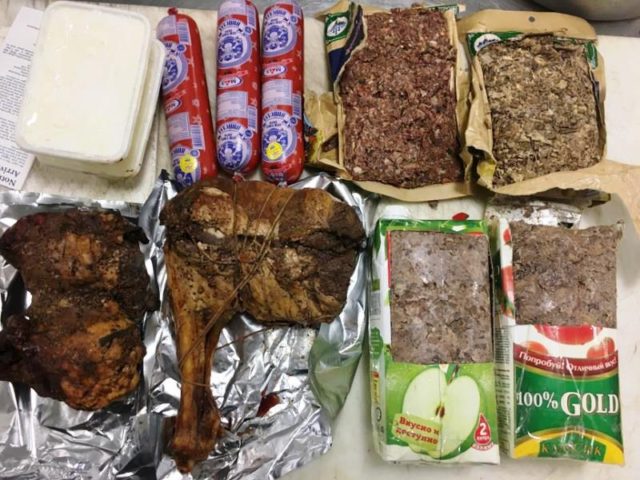Federal customs officers seized the luggage of two Mongolian women who were allegedly smuggling horse genitals and other unauthorized horse meat. One of the women claimed the 13 pounds of horse genitals were for “medicinal purposes.”
U.S. Customs and Border Protection (CBP) officers made the unusual discovery in the luggage of two women from Mongolia who arrived at Dulles International Airport on January 29. The luggage contained horse meat concealed inside juice boxes, information obtained by Breitbart Texas from CBP officials revealed. The 42 pounds of horse meat included 13 pounds of horse genitalia, other ruminant meat, and three liters of yak milk.
CBP officers said agricultural specialists are used to seeing very unusual things at the Washington, D.C. airport. Previous discoveries include charred monkeys, voodoo ceremonial tools, live sea horses, and African land snails. Other, more sinister discoveries, include cocaine hidden inside the body cavities of cooked chickens.
The discovery of the horse meat and genitals came during a routine entry inspection at the international port of entry. Federal regulations prohibit the import of horse meat unless it is accompanied by an official government certification from the country of origin, officials stated. Without such documents, the meat products are seized to prevent the spread of foot and mouth disease.
Mongolian horse meat is also prohibited because of concerns of importing animal diseases to U.S. livestock.
“Customs and Border Protection takes no pleasure in seizing and destroying travelers’ food products,” CBP Port Director for the Area Port of Washington Dulles Wayne Biondi said in a written statement. “We’re in the business of protecting America’s agriculture industries, like the livestock industry, from the potential introduction of animal diseases posed by these unpermitted food products.”
Officials stated it is not unusual for travelers to bring food products from their home country. While some of these items may be normal in their culture, they are prohibited for health and safety reasons from being imported into the U.S.
The CBP has officers specifically trained to intercept potentially dangerous agricultural and food products at ports of entry. With over 1 million travelers entering the U.S. through ports every day, officers find numerous opportunities to apply their specialized training. On any given day, CBP agricultural specialists will find 404 agricultural pests and diseases, along with 4,638 materials subject to quarantine. Those materials include plant, meat, animal byproducts, and soil.
“Safeguarding America’s agriculture industries, and by extension, our nation’s economy remains an enforcement priority for Customs and Border Protection. It is a mission that we take very seriously,” CBP’s Baltimore Field Operations Director Casey Owen Durst said in the written statement. Durst serves as the agency’s operational commander for the mid-Atlantic region.
Bob Price serves as associate editor and senior political news contributor for Breitbart Texas. He is a founding member of the Breitbart Texas team. Follow him on Twitter @BobPriceBBTX.

COMMENTS
Please let us know if you're having issues with commenting.